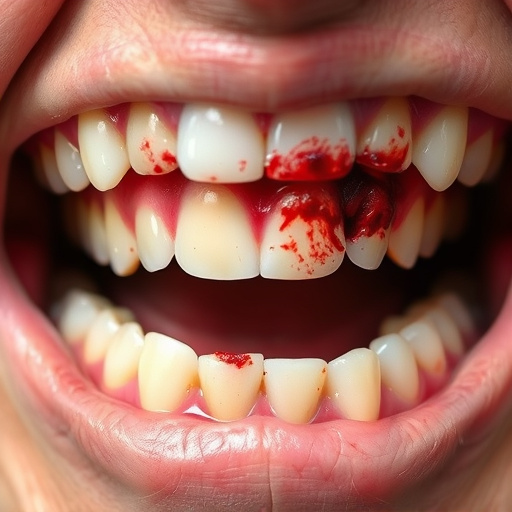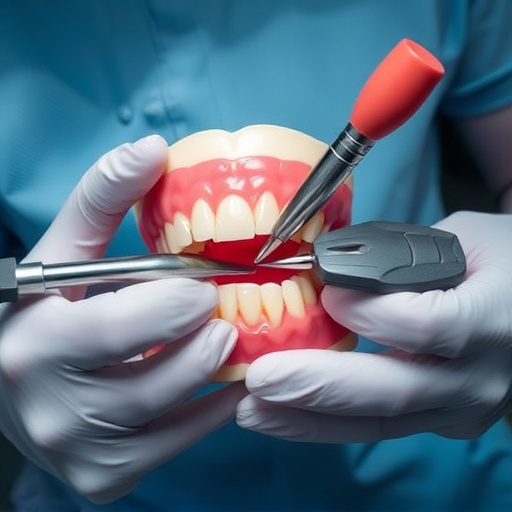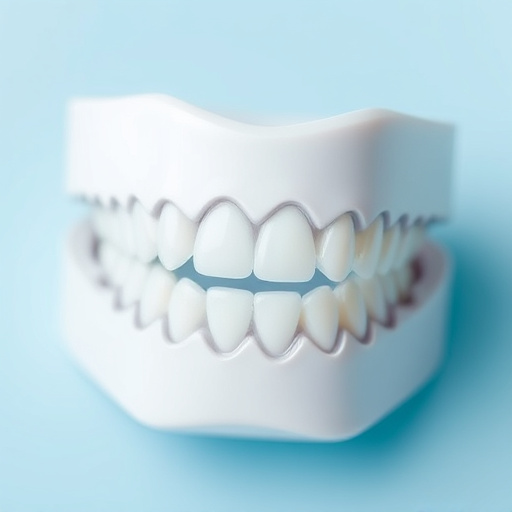Tooth sensitivity treatment goes beyond temporary relief, focusing on protecting delicate dentin nerve endings integral to dental health and overall well-being. Caused by enamel wear or gum recession, this condition leads to sharp pain from hot, cold, sweet, or acidic foods. Management strategies range from desensitizing toothpaste to advanced in-office procedures, ensuring lasting symptom alleviation for both adults and children.
Tooth sensitivity can be a painful experience, but it’s a common dental issue that can be managed effectively. This article delves into the world of tooth sensitivity treatment, focusing on how dentists protect nerve endings. We’ll explore the causes and symptoms of this condition, understand the crucial role of nerve endings, and discuss advanced treatment options for long-lasting relief. By the end, you’ll have a comprehensive grasp on how to tackle tooth sensitivity effectively.
- Understanding Tooth Sensitivity: Causes and Symptoms
- The Role of Nerve Endings in Dental Sensitivity
- Advanced Tooth Sensitivity Treatment Options for Long-Lasting Relief
Understanding Tooth Sensitivity: Causes and Symptoms
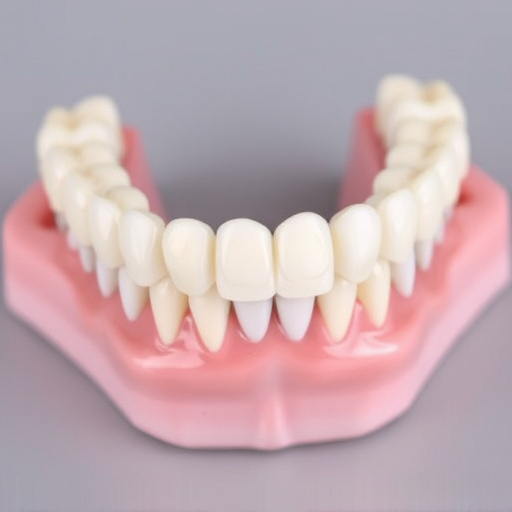
Tooth sensitivity, or dentin hypersensitivity, is a common dental issue that can cause discomfort and pain when consuming hot, cold, sweet, or acidic foods and beverages. It occurs due to the exposure of the tooth’s inner nerve endings located in the dentin layer, which is usually protected by enamel. This protection can be worn down over time due to various factors such as brushing too hard, gingival recession, tooth decay, or erosion from acidic foods and drinks. Once the dentin is exposed, the nerve endings become sensitive to stimuli, leading to a sharp shooting pain that can last for seconds.
The primary symptom of tooth sensitivity is sudden, short bursts of pain in response to specific triggers. It’s often described as a zing or jolt of discomfort. In some cases, patients may experience this sensation with even gentle brushing or while breathing through their mouth. While general dentistry offers various solutions for managing and preventing tooth sensitivity, treatments such as dental fillings or specialized tooth sensitivity treatments can be recommended depending on the underlying cause. For severe cases, dental implants might also be considered to restore oral health and comfort.
The Role of Nerve Endings in Dental Sensitivity
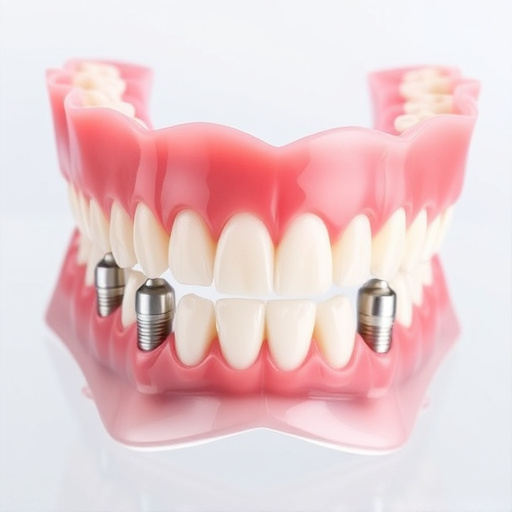
Tooth sensitivity treatment isn’t just about masking discomfort; it’s fundamentally aimed at protecting the nerve endings within our teeth. These intricate nerve endings, nestled deep within the tooth structure, play a pivotal role in our dental health and overall well-being. They serve as the tooth’s early warning system, signaling discomfort from temperature extremes, sweet or acidic substances, or even pressure during chewing.
When these nerve endings become exposed due to enamel erosion or receding gums, they can be susceptible to damage, leading to acute sensitivity. Emergency dental care often addresses this issue by providing immediate relief through desensitizing agents or thorough teeth cleaning as part of comprehensive dental care. By targeting these nerve endings directly, tooth sensitivity treatment not only alleviates symptoms but also maintains the vital connection between healthy teeth and their nervous system support structure.
Advanced Tooth Sensitivity Treatment Options for Long-Lasting Relief
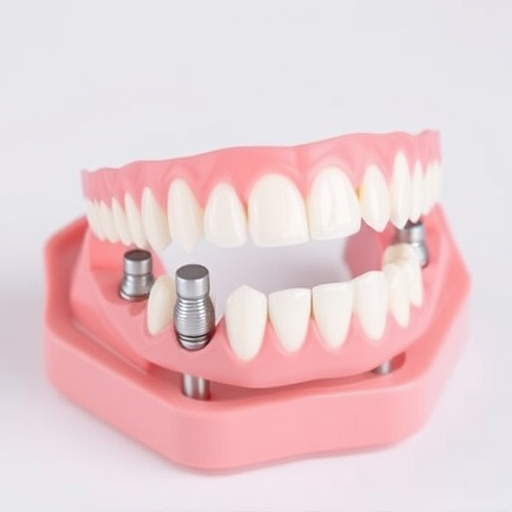
Advanced Tooth Sensitivity Treatment Options for Long-Lasting Relief
In recent years, significant advancements in tooth sensitivity treatment have emerged, offering patients more effective and long-lasting solutions than ever before. These advanced options range from desensitizing gels and varnishes to innovative in-office procedures designed to protect nerve endings and restore oral comfort. Modern techniques involve targeted applications of mineral compounds and special polymers that plug microscopic tubules in the tooth, preventing irritants from reaching the pulp and causing sensitivity.
Many family dentistry practices now offer these advanced tooth sensitivity treatment options as part of their comprehensive care services, catering not only to adults but also to children’s dentistry needs. For instance, special formulations tailored for kids can make sensitive teeth more manageable without causing discomfort or fear, ensuring a positive experience from start to finish. These treatments represent a significant step forward in managing and preventing tooth sensitivity, allowing individuals to enjoy their favorite foods and beverages without worry.
Tooth sensitivity treatment is a crucial aspect of dental care, aiming to protect nerve endings and provide long-lasting relief. By understanding the causes and symptoms, dentists can offer advanced treatment options tailored to individual needs. These innovative solutions revolutionize how we manage dental sensitivity, ensuring folks can enjoy a pain-free, vibrant smile. Remember that, in the world of dentistry, these game-changer treatments underscore the importance of regular checkups and proactive care.








